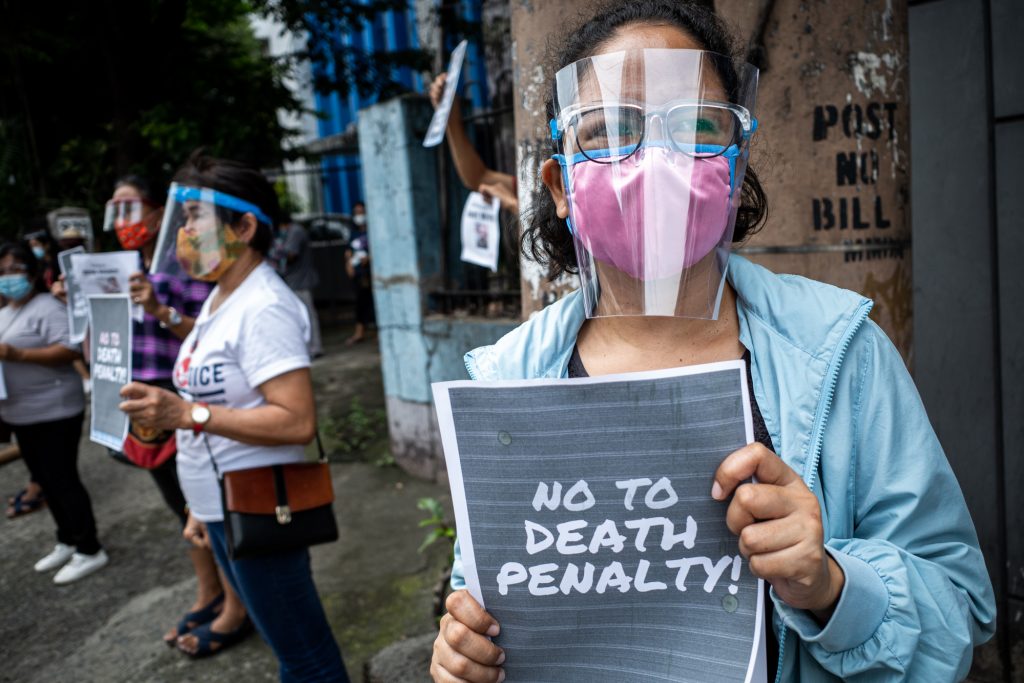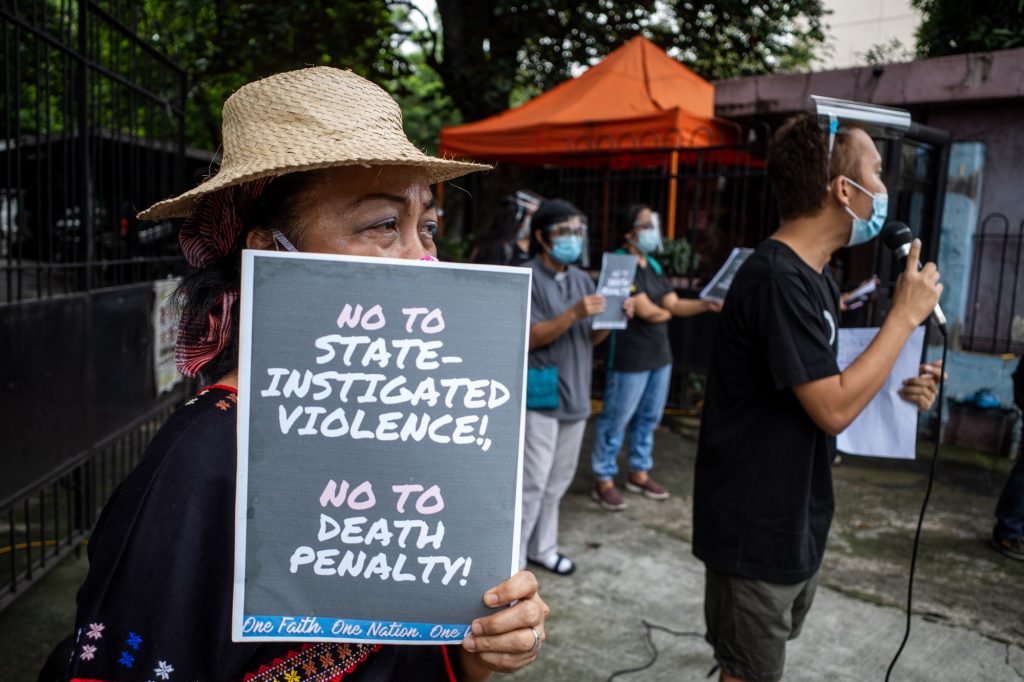
Ecumenical church groups in the Philippines warned of a “looming possibility of the reinstatement of death penalty” in the country.
“As believers in the sanctity of life, we oppose all moves by the administration (of President Rodrigo Duterte) to further a culture and climate of violence and death,” read a statement from the group One Faith, One Nation, One Voice.
The statement was signed by Bishop Broderick Pabillo of Manila for the Catholic Church and Bishop Emergencio Padillio of the United Church of Christ in the Philippines.
The church leaders said the death penalty “will become a judicial tool of murder which will surely victimize the poor who have limited or no access to legal defense and judicial process.”
They also warned that abuse by authorities and police personnel “as well as corruption and scandal in government have eroded the people’s trust,” adding that “justice is difficult to pursue with courts that are slow, cumbersome, and inept.”
“The government should focus on cleaning up their operations, rather than pushing legislation that will kill its own citizens,” said the church leaders.
Bishop Pabillo said the Church has been telling authorities and the public that “only social justice and addressing the root cause of poverty” will solve the problems of criminality.
“The death penalty is not in line with the Church’s social teachings and of what Jesus told us – feed the lambs and tend the sheep,” said the prelate.

In his fifth State of the Nation Address in July, President Rodrigo Duterte asked Congress to pass a bill that will reinstate the death penalty by lethal injection for drug-related crimes.
Bishop Padillio of the United Church of Christ in the Philippines urged the Philippine government to uphold “restorative justice” than a punitive policy.
He said persons who committed criminal acts must be given a chance to repent and rehabilitate while the State gives redress to the victims.
“Individuals who committed crimes should be provided with a process that aims to correct their behavior and pay for their sins and wrongdoing,” said the prelate.
Bishop Reuel Marigza of the National Council of Churches in the Philippines said the national government must “heed the cry for life” of thousands of Filipinos affected by the coronavirus pandemic.
“The imposition of the death penalty is definitely not the answer to this cry,” said the prelate.
He instead urged authorities to focus on mass testing, livelihood, economic assistance for the poor, and support for the medical frontline workers in the time of the pandemic.
“Preach justice by upholding life in the midst of a global health crisis. Preach life, not death, for a change Mr. President,” said Bishop Marigza.
In his later encyclical titled “Fratelli tutti,” Pope Francis said the “death penalty is inadmissible and the Church is firmly committed to calling for its abolition worldwide.”
Source: Licas Philippines
0 Comments